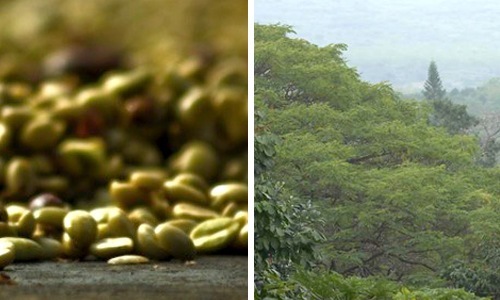
Coffee Farmers Sue Monsanto for Hiding Cancer-Causing Impact of Glyphosate

“While we are sympathetic to anyone suffering an illness, claims regarding glyphosate in these type of lawsuits are baseless and without merit, and we will defend against these suits vigorously,” Monsanto spokeswoman Charla Lord told Law360 in an November email. “Glyphosate has a 40-year history of safe use, and based on the overwhelming weight of evidence, regulatory agencies around the world have concluded that glyphosate can be used safely according to label instructions.”
Monsanto sued by former #Kona coffee farmers | https://t.co/qGwNkNxP08 pic.twitter.com/06TmKZtCId
— West Hawaii Today (@westhawaiitoday) February 4, 2016
Monsanto issued a similar response to the Sheppards’ latest lawsuit last week.
The Sheppards’ claims compounds with the World Health Organization’s International Agency for Research on Cancer (IARC) that infamously classified glyphosate as “probably carcinogenic to humans.”
Since the IARC’s classification, several communities have demanded bans, France has ceased sales of Roundup in garden centers, California’s Environmental Protection Agency issued plans to list glyphosate as a possible carcinogen under Proposition 65, in which the state is required to publish a list of chemicals known to cause cancer or birth defects or other reproductive harm.
“I feel strongly about the fact that Monsanto should have told people that their herbicide is a cancer-causing agent and they haven’t warned people. It’s a shame,” Miller added. “Once the World Health Organization says you are probably a cancer-causing agent, you are a cancer-causing agent. That’s why California has implemented Proposition 65 (the Safe Drinking Water and Toxic Enforcement Act of 1986), to let everybody know (glyphosate) is a cancer-causing agent.”
Monsanto says glyphosate is safe and vehemently denies the cancer claims. The St. Louis-based company has demanded a retraction from the IARC and even filed a lawsuit in California to stop the state from listing glyphosate as known to cause cancer.
Christine Sheppard has spoken out against biotechnology before when she served as president of the Kona Coffee Council, an organization of Hawaiian farmers who grow, process and sell Kona coffee. In a 2002 news release, she spoke out against genetically modified (GMO) coffee plants.
“We represent more than 130 coffee farmers who depend on our unique and historically significant Kona coffee for their livelihood,” she said. “Kona coffee is recognized as one of the worlds two grand cru coffees—introduction of GM plants could debase not only the flavor and quality of our coffee, but would also make it unmarketable in many areas of the world. GM foods are unaccepted in Japan and Europe (where they are known as “Franken-foods”); as Americans become more aware of the untested safety aspects and the absence of any labeling requirement for GM foods, many will reject them also.”
The Kona coffee lawsuit is one of many glyphosate-related lawsuits Monsanto is currently staring down. Reuters reported in October that personal injury law firms around the U.S. are gathering numerous plaintiffs to build mass tort actions against the agribusiness giant.
Roundup was recently declared the “most widely applied pesticide worldwide,” according to a report published in the peer-reviewed journal Environmental Sciences Europe.
The paper, Trends in glyphosate herbicide use in the United States and globally, reveals that since 1974, when Roundup was first commercially sold, more than 1.6 billion kilograms (or 3.5 billion pounds) of glyphosate has been used in the U.S., making up 19 percent of the 8.6 billion kilograms (or 18.9 billion pounds) of glyphosate used around the world.
“Roundup Ready” crops, such as soy, corn, canola, alfalfa and cotton, are genetically engineered to withstand direct applications of Roundup, as the product kills only the weeds.
YOU MIGHT ALSO LIKE
Neil Young Takes His Anti-Monsanto Message on the Road
Pro-GMO Group Crosses Ethical Line
These 3 Women Attend Monsanto’s Annual Shareholder Meeting Demanding Answers
Monsanto’s Glyphosate Most Heavily Used Weed Killer in History

 233k
233k  41k
41k  Subscribe
Subscribe 